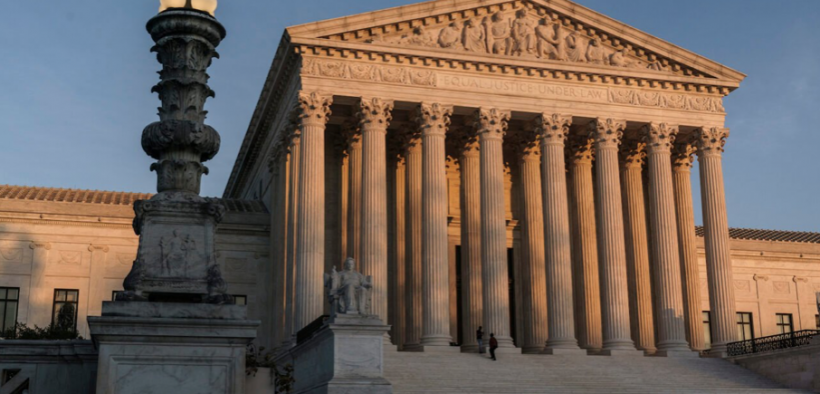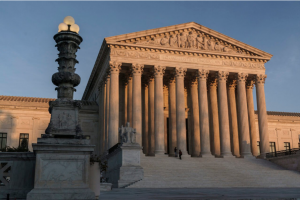Supreme Court Hears Oral Arguments in Donor Disclosure Case

The Supreme Court heard oral arguments Monday (April 26) in a consolidation of two cases that would potentially require California nonprofit organizations to disclose names of major donors with their Form 990s.
The two cases—Thomas More Law Center v. Bonta and Americans for Prosperity Foundation v. Bonta—both trace back almost a decade when California, under then-Attorney General Kamala Harris (now vice president), began requiring nonprofits in 2013 to divulge a list of major donors of $5,000 or more, or 2 percent of contributions, in the form of an unredacted Schedule B of Form 990. The nonprofits have claimed infringement on their First Amendment rights.
“Every American should be free to peacefully support causes they believe in without fear of harassment or intimidation,” said Alliance Defending Freedom Senior Counsel John Bursch, who is representing Thomas More. “Public advocacy is for everyone, not just those able to weather abuse. Forced donor disclosure is a threat to everyone and discourages both charitable giving and participation in the marketplace of ideas.”
Access to MinistryWatch content is free. However, we hope you will support our work with your prayers and financial gifts. To make a donation, click here.
ADF lists questions from many of the justices’ that display sympathy for the plaintiff’s positions:
- Chief Justice John Roberts questioned how requiring thousands of charities to obtain exemptions from the donor-disclosure requirement would work.
- Justice Brett Kavanaugh recognized that groups across the political spectrum—including the American Civil Liberties Union, National Association for the Advancement of Colored People, and Human Rights Campaign—are concerned that California’s disclosure rule will chill free speech and association.
- Justice Clarence Thomas noted that the government used confidential census data to locate Japanese citizens for internment during World War II and worried about today’s toxic climate, where people are loosely labeled “racist” or “white supremacist.”
- Justice Samuel Alito pointed out that the district court found California’s security lapses “shocking,” and Justice Sonia Sotomayor added that reasonable donors might no longer have faith in California.
- Justice Neil Gorsuch expressed concern that ruling for California could allow the government to mandate the disclosure of other personal information, like citizens’ Christmas card lists or dating history.
Rick Hazen, professor of law and political science at the University of California-Irvine, has speculated on his Election Law Blog that California is likely to lose its case. “It collected donor information for law enforcement purposes but allowed the information to leak,” he said. He expects a decision by the end of June.
“Potential givers to charities have good reason to fear being doxed—that is, having their public information spread for malicious purposes,” Bursch said. “Too many are quick to ostracize, lambast, and threaten people who they disagree with politically or morally. This tendency—often described as ‘cancel culture’—shouldn’t be codified or aided by the force of law.”



